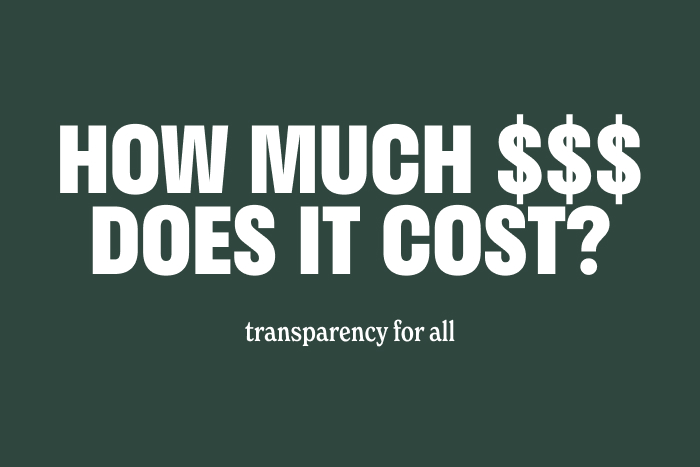Best Church Website Builders in 2025: A Complete Guide

Choosing the right church website builder is a big decision. We compare the top platforms for churches in 2025, including Webflow, Squarespace, Subsplash, and more, so you can find the best fit.
There are a variety of website builders available for churches that offer a variety of specialized features to help you connect with people online. We’ve created a comprehensive guide to the best church website builders to help you choose what’s best for your church.
What Makes a Great Church Website Builder?
Before diving into specific platforms, it’s important to sort out the essential features a church website builder should offer:
- Excellent Design: Compelling design that keeps users engaged
- Event Management: Easy calendar integration for services, bible studies, and church-wide events
- Third Party Platform Integrations: The ability to integrate giving, events, groups, and more
- Sermon Library: Ability to upload and organize audio/video sermons
- Mobile Friendly: Ensures your site works well on all devices
- Easy Content Updates: Simple interface for staff and volunteers
- SEO: Tools that will help you rank high on google search
- Community Features: Member directories and small group management
Top Church Website Builders
Subsplash
Best for Full Church Integration
Subsplash offers a comprehensive online platform for churches. They are most known for their giving solution and mobile apps, but over time they have added additional products such as a church website builder, groups management, forms, and more.
Their platform includes:
- A drag-and-drop website builder
- Custom branded Mobile Apps
- Integrated live streaming
- Robust giving platform
- Church management
- Media and event management
Pros: Subsplash's church website builder, SnapPages, is very DIY friendly for churches. It doesn't take much technical experience to be able to use this builder. In addition, you're able to take advantage of their "all in one" platform that allows you to update your website, app, groups, and more all from the same place. This can be a great time saver for churches.
Cons: SnapPages has limitations that some churches might find frustrating. They have a few templates available that you can customize, but that customization doesn't take you very far. If you're wanting your church website's design to be compelling and have a WOW factor, this isn't the tool for you. Additionally, SnapPages functionality is limited depending on what you're needing from your website.
Final take: Subsplash is a great option for churches who don’t need too much out of their website. It has some limitations when it comes to website design and functionality, but they do offer some great integrations when you’re using their full suite of products.
Webflow
Best for Large Churches
Webflow is perfect for any church that is wanting to get the most out of their church website. This platforms gives you full control over the design and functionality of your website, giving you the ability to customize your website to exactly what you need.
Webflow features include:
- Advanced design customization
- CMS for sermon and event management
- Custom animations and interactions
- Responsive design controls
- Developer-friendly features
- SEO optimization tools
- High-performance hosting
- Great security features
Pros: Unlike other drag-and-drop builders, Webflow give you full control of your website. You can completely customize every design element as well as utilize advanced functionality that other web builders can't accomplish. It also has a powerful CMS, SEO capabilities, and more. This tool is perfect for medium and large sized churches who have unique needs and have out grown drag-and-drop builders.
Want to learn more about Webflow? Read this article
Cons: Since Webflow is a more advanced website builder, it isn't a practical tool for churches who want to DIY their website. Instead you'll likely need to hire an outside developer or agency to be your website partner. Because of this, this platform might not be a great fit for your church if you have a limited budget.
Final Take: In our opinion, Webflow is the overall best church website builder out there. It’s an advanced tool that gives you the ability to create church websites that are stunning and effective. It just comes at a cost, and that cost might not work for certain churches with limited budgets.
The Church Co
Best for Small Churches
The Church Co is a great option for churches who want a all-in-one platform that can host your website, email newsletter, giving, and more. This platforms continues to grow with their new website builder as well as frequent releases of new features.
The Church Co Features:
- Church-specific website templates
- Built-in sermon manager
- Event registration system
- Online giving and tithing
- Group management tools
- Church app builder
- Email newsletter system
- Automated social media posting
Pros: Everything on this platform is specifically built for churches, which creates a lot of benefits for churches who go all-in The Church Co. The platform is robust and can serve churches in a lot of ways.
Cons: This platform has limitations when it comes to design and certain functionality when compared to more custom options. Additionally, it is harder to migrate away from this platform if you ever decide to switch to a different platform in the future.
Final Take: The Church Co is a great option for churches that want a plug and play option for their website. You get just about everything you need in this one platform. With that said, their website builder isn’t as robust compared to Squarespace or custom builders like Webflow.
Squarespace
A Great Drag-and-Drop Builder
Squarespace has been around for a long time, and over the years they have developed a robust drag-and-drop website builder. They just have the best all around DIY option when it comes to design customization and templates and other premium resources. Like all drag-and-drop builders, there are some limitations and frustrations when using the platform, but it can serve a lot of churches well.
While not church-specific, Squarespace offers:
- Beautiful, contemporary templates
- Strong mobile experience
- Easy integration with third-party tools
- Robust blogging capabilities
- A lot of customization for a drag-and-drop builder
Pros: Since Squarespace has been around for such a long time, they have really developed their platform to be pretty advanced for a drag-and-drop builder. They have a grid system that allows you to add elements and place them in fairly precise areas on a page as well as set mobile specific placements. Lastly, there are really helpful forums and youtube videos available to help you implement custom code to your website.
Cons: Squarespace's content management system still isn't very robust which can make maintaining your website a bit more work. It also doesn't offer any church specific features like some of the other drag-and-drop platforms on this list. Lastly, you'll still find yourself quite limited if you're trying to do any advanced design and functionality on your website. Lastly, their platform is advanced compared to similar options, but you'll still find yourself quite limited if you're trying to do any advanced design and functionality on your website.
Final Take: Squarespace offers the best drag-and-drop builder for churches that value great design. The only thing missing is church specific features that other options provide. If your church already has solutions for giving, events, and groups, Squarespace is likely the better option compared to other church specific DIY platforms.
WordPress
WordPress is the OG in the space and can still host powerful and robust websites. You can either create full custom websites on the platform or utilize it’s large ecosystem of themes and plugins. Although it takes a bit more work to setup, WordPress offers powerful solutions for churches with advanced needs. With that said, WordPress tends to rely on unreliable plugins and isn’t as easy to update on your own compared to something like Webflow.
WordPress features include:
- Ultimate flexibility and customization
- Large ecosystem of plugins and themes
- Strong community support
- Cost-effective for basic sites
- Complete control over data and hosting
- Excellent SEO capabilities
Pros: WordPress has a lot of customization available on it’s platform. There are many themes and tools that have been developed that allow you to create a custom solution for your website. In addition, WordPress allows you to independently select hosting for your website, for those who want ultimate control.
Cons: WordPress requires someone with advanced knowledge in order to setup a website. In addition, it’s user interface isn’t very intuitive for managing content and editing your website. In addition, there’s some concerns over plugin reliability and security threats.
Final Take: For churches who want a custom site, WordPress is a worthy consideration. Although we tend to prefer Webflow as it can accomplish just about everything WordPress can, but on a platform that’s easier to maintain and that is more secure.
Key Considerations When Choosing a Church Website Builder
- Budget: Consider both immediate and long-term costs
- Technical Expertise: Assess your team's ability to manage the site
- Scaleability: Choose a platform that can scale with your church
- Integration Requirements: Ensure compatibility with existing tools
- Design Flexibility: Determine how much customization you need
Making Your Final Decision
The best church website builder for your congregation depends on your specific needs:
- Small Churches: Consider The Church Co for their simplicity and affordability
- Medium-Sized Churches: Consider Subsplash or Squarespace for their robust features.
- Large Churches: Webflow offers advanced capabilities for custom development
Conclusion
Your church website is often the first point of contact for potential visitors and a vital communication tool for your congregation. While each platform has its strengths, the best choice is one that aligns with your church's size, technical capabilities, and ministry goals. Consider starting with a free trial when available to ensure the platform meets your needs before making a long-term commitment.
Want to figure out if your website is actually working? Get our ultimate church website checklist.
Are you ready?

























